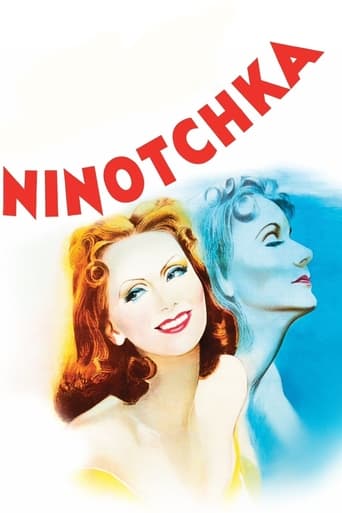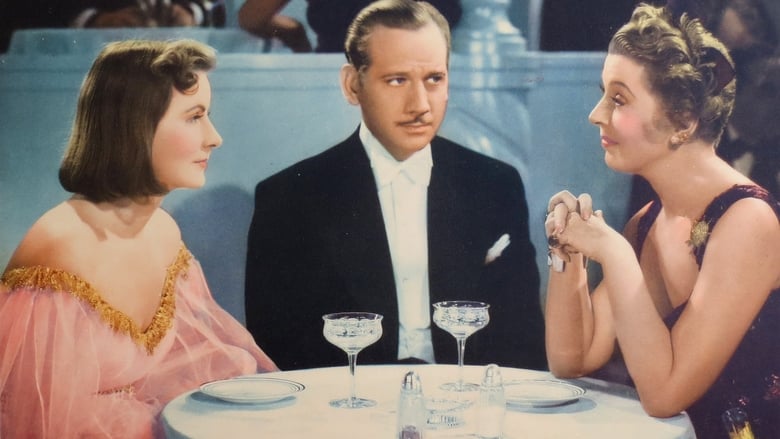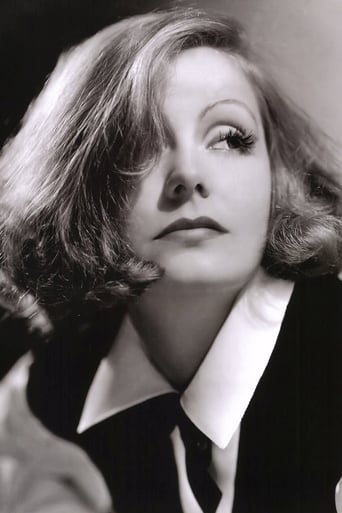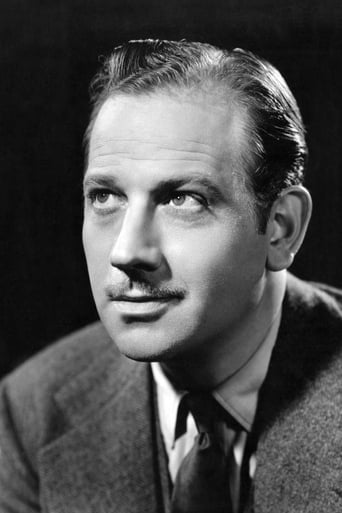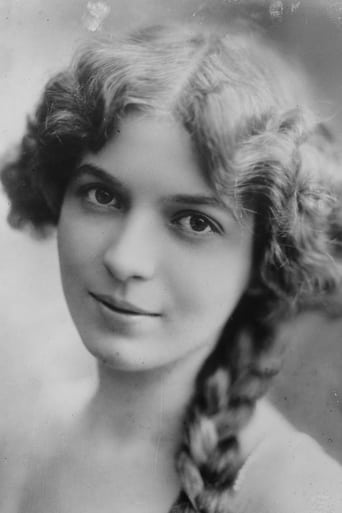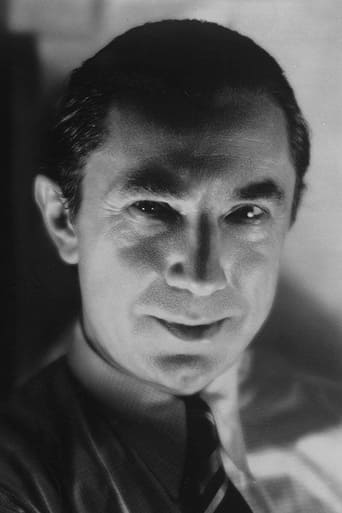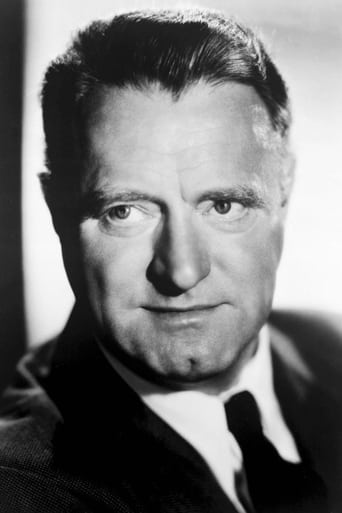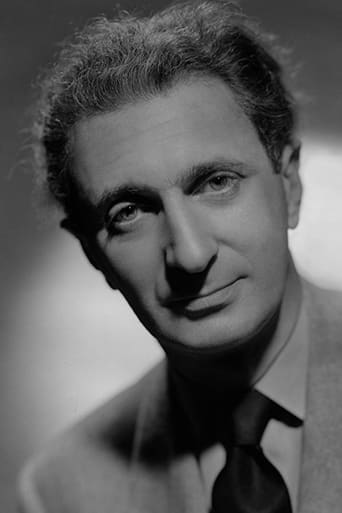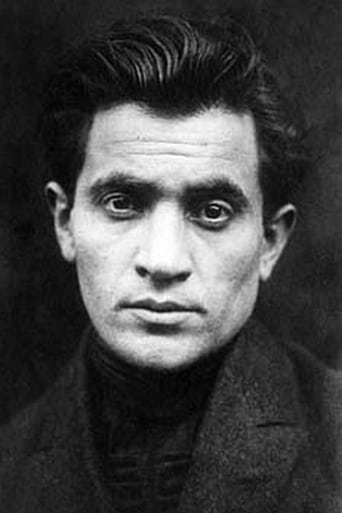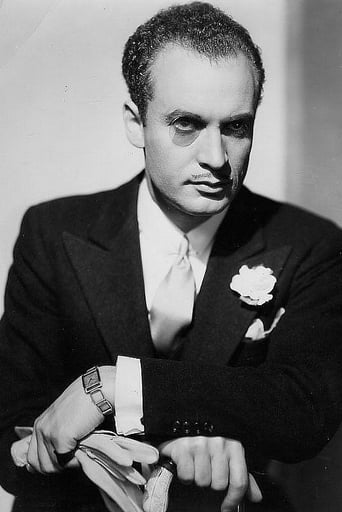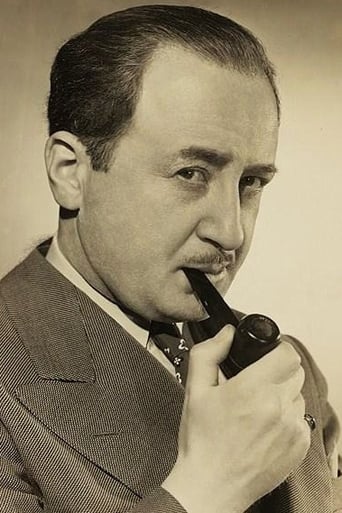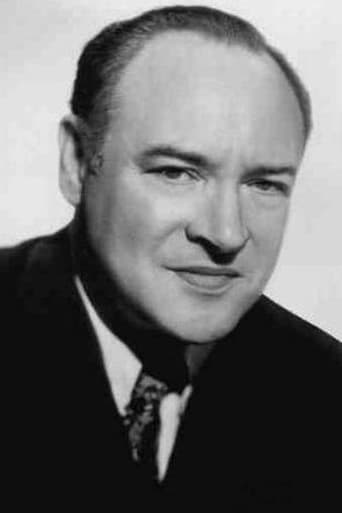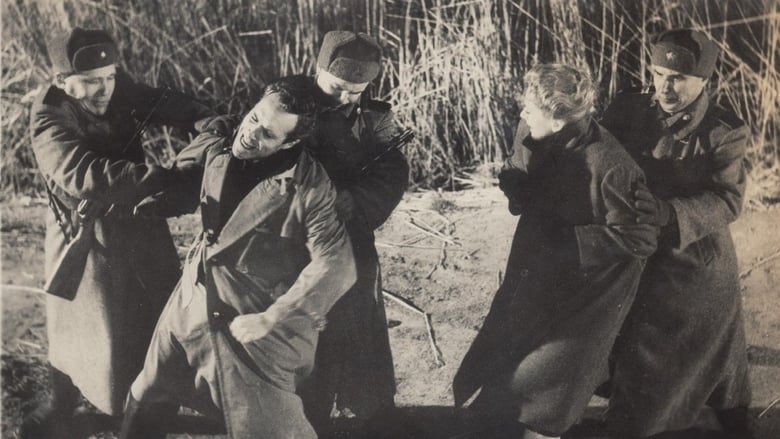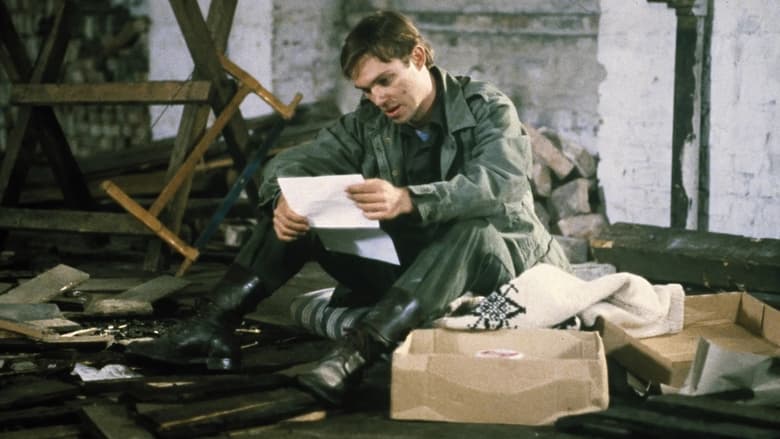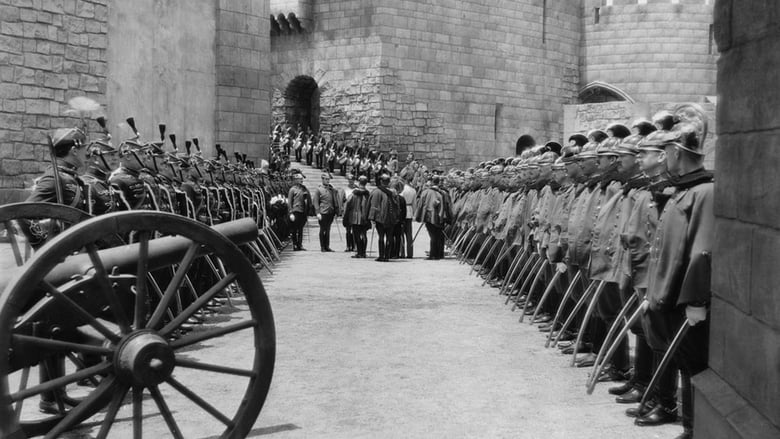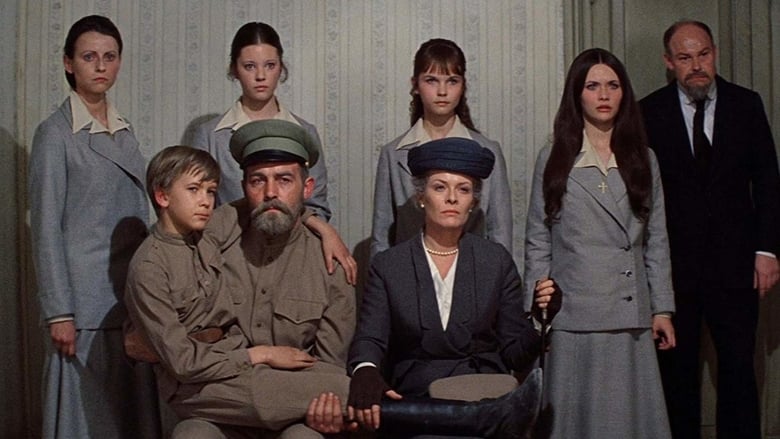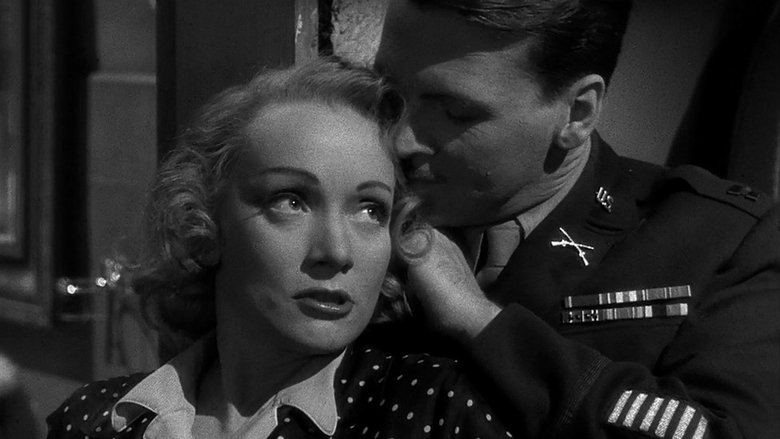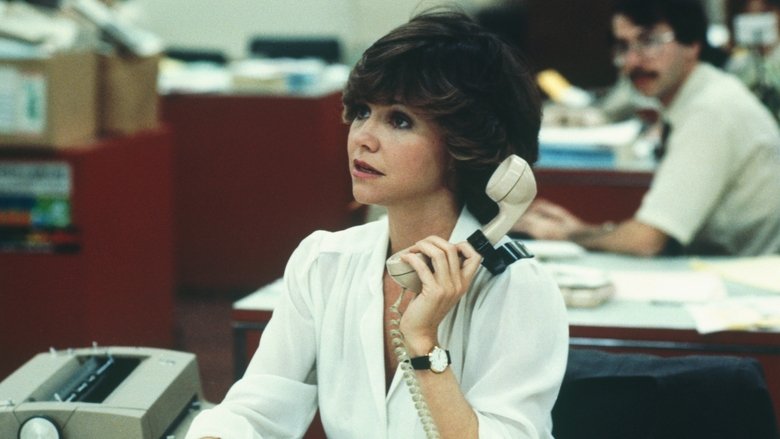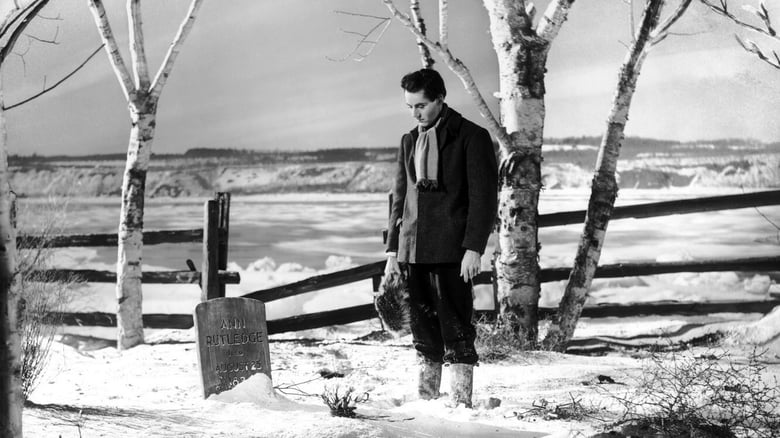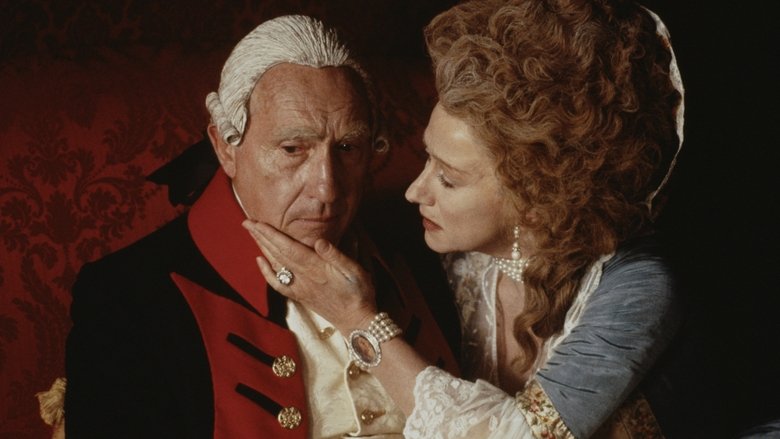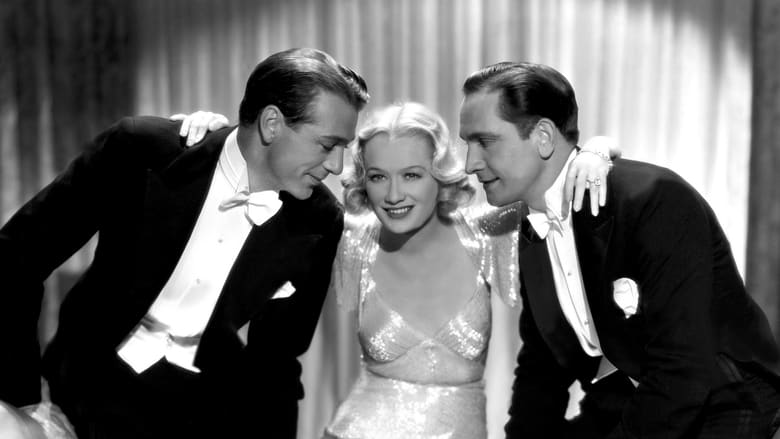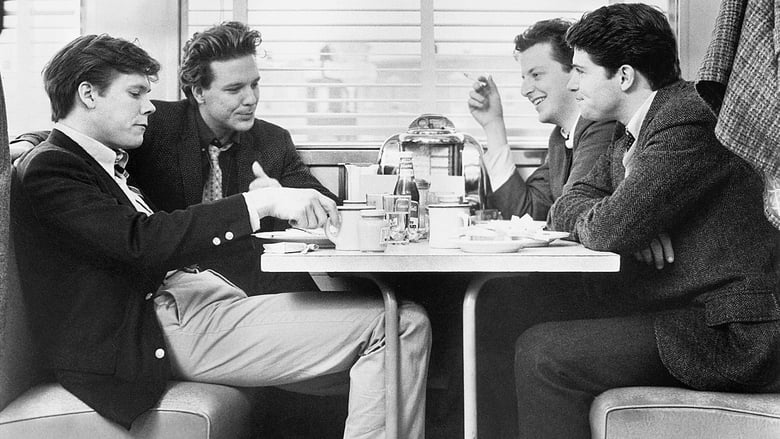A stern Russian woman sent to Paris on official business finds herself attracted to a man who represents everything she is supposed to detest.


Similar titles
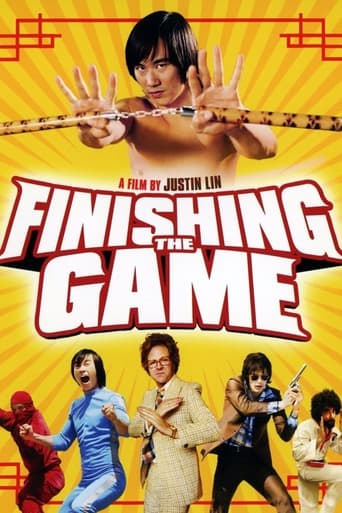
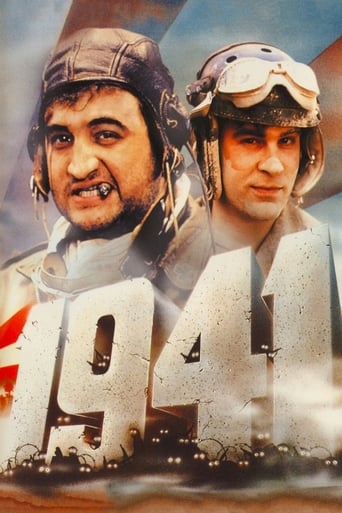
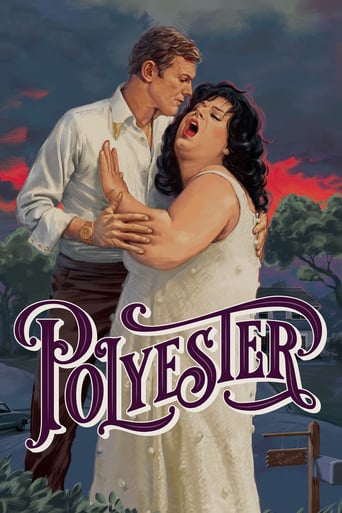
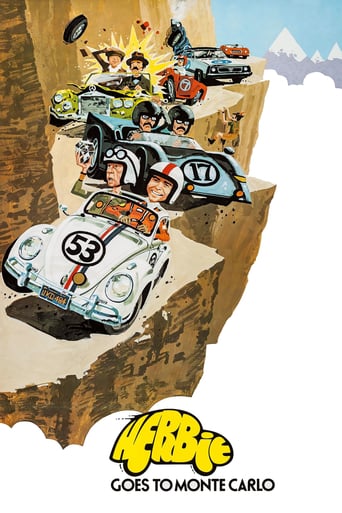
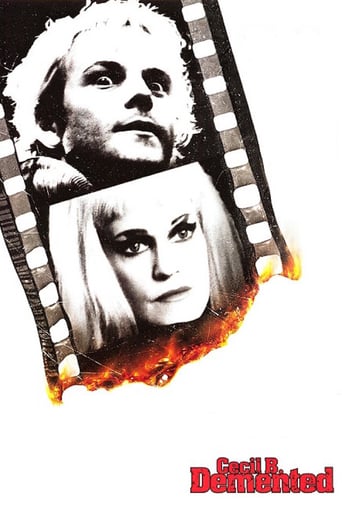

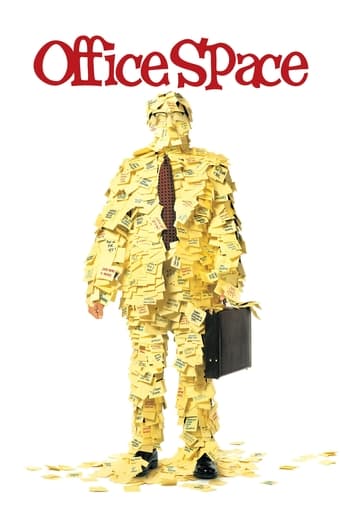
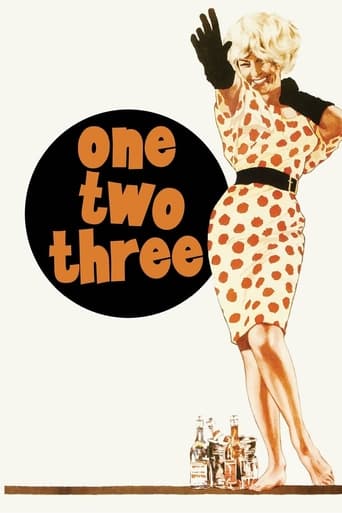
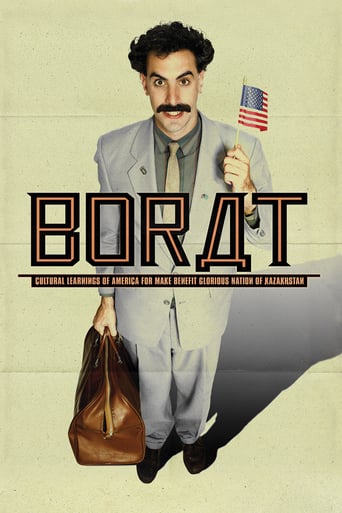
Reviews
I would not call NINOTCHKA controversial film. Political comedy in the late thirties by line developments were controversial. The differences between the two worlds are not likely to appear in the right way. I think that's good, because it is a comedy and Garbo. Lubitsch had chosen a great topic in which Garbo fits. Garbo between two worlds. The director deliberately exaggerating the degree of cynicism and comparisons. In a serious relationship director put a little thing called love. Not honestly, but it is funny. I still say that Garbo did not know laugh. Therein lies all the mysticism and magic that binds to her name. Image and scenery are very good. Acting and dialogues are great.Greta Garbo as Nina Ivanovna "Ninotchka" Yakushova It is a particular comedian. Her style is fantastic. Shifts between cold and uninterested envoy and playful girl in love is fascinating. Melvyn Douglas (Count Léon d'Algout), as an insidious capitalistic meddler is nonchalant and excellent paired with a leading lady.This movie is one big joke, which can all laugh. However, I think when the perceived political framework is little disposed to laughter.
The movie starts very well, but ends badly. From the outset the movie is funny - full of great one-liners and social observations. Also a great political satire - mocking the evil of Soviet Russia and the naivety and stupidity of communism with some great satire. Capitalism doesn't get off scot-free either: the superficiality of some elements of it are also exposed.The opening few scenes also give a great insight into the European zeitgeist of the mid/late-1930s, especially the competing forces of capitalism, communism and fascism/nazism.From this auspicious start, a monumentally great movie was in the offing. However, from a point the movie takes itself far too seriously as a romantic drama. Instead of a political satire, or just plain comedy, it becomes a schmaltzy romantic drama, and a fairly predictable and conventional one at that.Even the humour becomes tired, predictable, more-of-the-same, rather than the fresh, sharp comedy from the first few scenes. The final few scenes are quite dull.It's as if the writer, the legendary Billy Wilder, ran out of ideas about half way through.Good performance by Greta Garbo as Ninotchka. Her cool, humourless impression of a Russian bureaucrat was something to behold. Melvyn Douglas is the clown to her straight guy, and does it very well. The three bumbling Russian officials are also played well.
NINOTCHKA (Metro-Goldwyn-Mayer, 1939), directed by Ernst Lubitsch, ranks one of the finest comedies to emerge in what's regarded to be Hollywood's greatest year, 1939. It was also that very year where certain top-rated stars, having gone through a declining period, would recapture the status they once acquired some time ago. The legendary Greta Garbo happened to be one of them. After playing tragic heroines for MGM dating back to the silent era of 1926, it was time for Garbo to either retire following her last screen appearance of CONQUEST (1937), or do something completely different. A Garbo musical might have been interesting, but quite unlikely. A western? Not quite. Garbo in pistols and petticoats would definitely not be her style, though it did work for Marlene Dietrich in DESTRY RIDES AGAIN. A murder mystery? Perhaps. Or at least another love story might suffice? The next best thing to reinventing the Garbo image turned out to be a comedy. Screwball comedies were highly successful and common place during the latter half of the thirties. For this comedy, however, it had to be both funny and agreeable to public taste. Funny and agreeable it was. Under stylish direction from the man known for his "Lubitsch touch," and excellent scripting by Charles Bracket, Billy Wilder and Walter Reich, the comedy in question resulted to the title character bearing the Russian name of NINOTCHKA.Opening title: "This picture takes place in Paris in those wonderful days when a siren was a brunette and not an alarm - and if a Frenchman turns out the light, it was not on account of an air raid!" The story opens with Russian comrades, Buljanoff (Felix Bressart), Iranoff (Sig Rumann) and Kopakski (Alexander Granach), in Paris, on a mission from the Soviet Government to sell jewels once belonging to the Grand Duchess Swana (Ina Claire) with the money used for farm machinery. Their assignment is soon forgotten as the trio enjoy themselves in the company of beautiful barmaids. Also at the luxurious hotel is Alexis Rakonin (Gregory Gaye), a Russian count posing as a waiter, who informs the Grand Duchess of their activities. Swana then has her lover, Count Leon D'Algout (Melvyn Douglas), to assist by both filing a court injunction to prevent the selling of the jewels as well as showing the comrades a good time in order to forget why they're in Paris in the first place. Due to the long delay, the Soviet sends Nina Ivanovna Yakushova, better known as Ninotchka (Greta Garbo), to investigate. Having met Ninotchka at a crosswalk, Leon, unaware of her identity, immediately becomes fascinated by her. During her stay in Paris, Leon does everything to entertain her, from escorting her to the top of the Eiffel Tower to endless attempts in trying to make her laugh. When Ninotchka finally transforms into a new woman, trading her beret for a modern hat, she, too, forgets her assignment by concentrating on Leon. When Ninotchka mysteriously returns to Russia, Leon tries to follow her there, but is unable to obtain a Visa.For Garbo's introduction in American comedy, NINOTCHKA comes no better than this. She earned a well deserved Academy Award nomination for her performance. What makes NINOTCHKA work so well is the way Garbo delivers her comedy lines, in the same manner of her dramatic roles. Enacting it in a straightforward manner with no attempts of being funny is the secret to the hilarity. The more serious she is, the funnier she becomes. Of the many classic lines delivered here, with one being a little "in-joke" pertaining to Garbo's classic tag line of "wanting to be alone," the one that should get honorable mention is, "Do you want to see my wound." For Garbo's male co-star, Melvyn Douglas proved to be a most logical choice. His most classic scene comes as he helps his leading lady fulfill her much publicized slogan, "Garbo laughs!" She's laughed before on screen, but never so hysterically. A pity the Garbo-Douglas reunion comedy of TWO FACED WOMAN (1941) didn't earn the same reputation as NINOTCHKA. The now forgotten Ina Claire, better known more for her theatrical than screen performances, gives a good account of herself as the Duchess. It's a wonder how the sophisticated Genevieve Tobin might have done had she assumed that very same role. Horror movie fans will be surprised in finding the fourth-billed Bela Lugosi appearing as the Russian Commissar Razinin. Even more surprising how his one and only scene opposite Garbo to not only come very late into the 111 minute story, but one lasting a little less three minutes!As much as NINOTCHKA has been imitated and recycled throughout the years, only the musical remake, SILK STOCKINGS (MGM, 1957) starring Fred Astaire and Cyd Charisse (Ninotchka) comes close in recapturing the success of the original. Distributed to video cassette in the mid 1980s and later onto DVD, viewers can capture a glimpse of the legendary Garbo laughing (and showing off her wound) in one of cable TV's many broadcasts on Turner Classic Movies. (**** comrades)
"Ninotchka" is one of the funniest movies ever made. But it's not a slapstick or screwball comedy. It is in the class of "It Happened One Night," "My Man Godfry," and "Holiday." The humor is in snappy dialog. The one-liners, subtle zingers, and satire poke fun mostly at Soviet Russia and communism. But it has occasional jabs at capitalism and western lifestyles – notably the idle rich. The movie is superb in all aspects, especially in the script, direction, settings and acting. All of the cast give top performances. Greta Garbo and Melvyn Douglas are the perfect match for some of the funniest repartee ever put on film. But, how Garbo (Ninotchka) could keep a straight face in those exchanges, one after another, is beyond me. I'll bet MGM had to do many retakes of some of her scenes. If not for her breaking down, then for the cracking up of Douglas (Leon) or others on the set and behind the camera. "Ninotchka" is one of the great comedy-romances for the ages. Young and old alike can enjoy it. But, from some of the comments I've read, it seems much of the humor is lost without a little knowledge of the time. So, I offer these tidbits to help set the stage and prepare viewers for a most enjoyable film. The time is the late 1930s. The story takes place mostly in Paris, moves to Moscow later, and ends in Istanbul. In 1939, all the world knows about Soviet Russia and many of its problems. It has been in the news since the communist takeover after the revolutions 20 years earlier. Joseph Stalin's five-year plan for recovery since 1922 was past its 15th year. So far, it had been an abysmal failure. His social programs had disrupted total populations. His collectivist farm program had failed miserably. Combined with drought and famine, the Russian people faced starvation.But that's not all. The Great Purge of 1936-38 had been in the news the past couple of years. It was Stalin's way to get rid of anyone who didn't agree with him or who might challenge his oppressive rule of Russia. The purge eradicated half a million Russian leaders. The press had covered the carefully staged mock trials in Moscow in that time. Many Russian communist and social leaders confessed to being traitors before they were sentenced to death or the gulags in Siberia. As all of that was going on and being reported from Russia, a number of former Czarist Russian royalty were living in exile around Europe, especially in Paris. Many stories and jokes circulated at that time about crown jewels and lost titles. Thus, the stage is set for "Ninotchka." With the large number of reviews posted up to this time, I wouldn't normally add my own. But, I think far too many people have missed the true depth of the satire and comedy in this great film. The IMDb Web site has a long list of witty dialog and exchanges from the film. But there are many more – and some real subtle zingers that I think many people miss. Here are a few to whet your appetite. In an early scene, Ninotchka explains why Soviet Russia is "peddling our precious possessions to the world at this time." She says, "Our next year's crop is in danger, and you know it. Unless we can get foreign currency to buy tractors, there'll not be enough bread for our people and you comrades." What a great example of skewered Soviet thinking. As if tractors could overcome a drought and famine. It's a great jab at the Soviets.Here's another one. Garbo looks over her hotel suite and says, "I'm ashamed to put a picture of Lenin in a room like this." And another, when her cohorts take her to the suite they reserved for her. "Which part of the room is mine?" Garbo asks. And a cohort replies, "You see, comrade, it's a little different here. They don't rent rooms in pieces. We had to take the whole suite." One more side-splitter was when her agents asked, "How are things in Moscow?" Garbo replied, "Very good. The last mass trial was a great success. There are going to be fewer but better Russians." A direct jab at Stalin's Great Purge. Douglas, meeting with the three agents early in the film, says that the jewels owned by the exiled duchess were confiscated by the Soviets. One of the agents quips, "I give you my word, they were confiscated legally." In a café later, a waiter seats Ninotchka and asks, "Now what shall it be?" She says, "Raw beets and carrots." He replies, "Madame, this is a restaurant, not a meadow." She next says, "Bring me something simple – I never think about food." The waiter asks, "If you don't think about food, what do you think about?" Ninotchka answers, "The future of the common people." And the waiter replies, "That's also a question of food." What a great running dialog!"Ninotchka" was nominated for four Academy Awards, including Garbo for best actress and the film as best picture. That year may have been the best year in motion picture history for the number of great films produced. But for that, "Ninotchka" likely would have won two or more Oscars. More than 40 full length movies competed for 1939 Oscar honors. Among the best of the year were "Gone With the Wind," "Stagecoach," Goodbye, Mr. Chips," "Mr. Smith Goes to Washington," "The Wizard of Oz," "Ninotchka," "Wuthering Heights," "Dark Victory," "Beau Geste," "Of Mice and Men," "Young Mr. Lincoln," "Gunga Din," "The Four Feathers," "Only Angels Have Wings," and "Bachelor Mother." Those top 15 films have a combined average viewer rating (on September 20, 2012) of 7.8. Has there been another year of more great movies than that?
